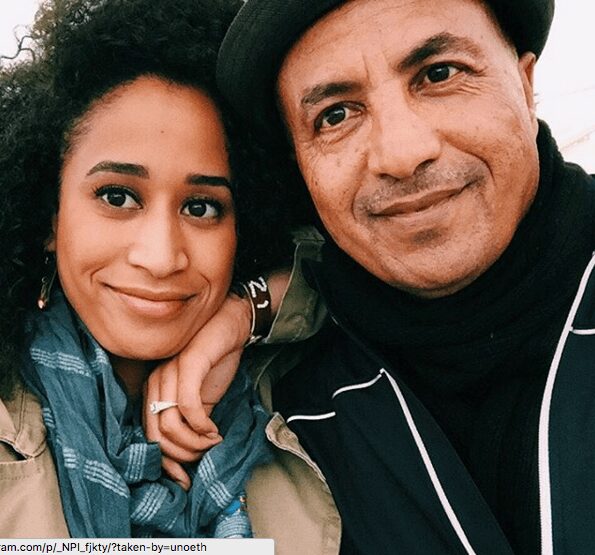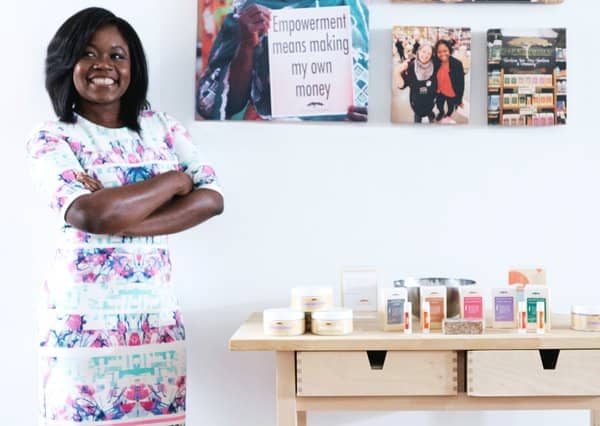Xiomara Rosa-Tedla: There are benefits to starting a business with family

Many people ask how and why my father and I started our business. And to be honest, it was by accident. About two years ago, my father returned home from a trip visiting family in Addis Ababa, Ethiopia. After picking him up from the airport and unloading luggage, he handed me a gift— a custom, handmade leather messenger bag. Immediately, I fell in love with my new gift and sported it everywhere. From work to dinner to weekend trips, I toted my new bag all around the world. And soon after, friends, family members, and strangers started asking, “Where did you get your bag? I love it! Can your dad get me one as well?” For months the questions and requests kept coming. Even my father told me he had been getting the same questions, and suggested, “Hey, I think we have a business here. Let’s start a leather bag business!” Shortly after, the birth of UnoEth began. Starting a business from scratch is a fun creative process, where brainstorming sessions let your mind run free with ideas and opportunities for your business to grow exponentially. But as with any business, the road to success is never a straight line up. There are dips, curves and encounters with the unknown. In addition, it can be a lot of work. On the bright side, there are benefits to running a business with family. A family member as a business partner can be extremely beneficial— especially my dad. Having an equal partner with a long history (my whole life) and blood ties helps solidify communication, trust, and dedication to succeed. Neither partner wants to let the other down. From day one of creating our new business, I felt unbelievably confident in our new venture because my dad and I shared the same vision and passion for our budding brand. In addition to trust, communication, and dedication, working with family also means splitting responsibilities. As we both grow our business around our full-time jobs, we wish there was more time in the day to juggle responsibilities. We split outstanding tasks, which alleviates the stress and workload on both of us. Communication is key to maintaining strong relationships with each other, our vendors, shipping counterparts, business partnerships and most importantly, our customers. In the development of UnoEth, we’ve learned to communicate promptly to avoid creating a bottleneck in our business. Thanks to apps like Viber, we’re able to communicate easily internationally via wifi and all stay on the same page— just in different time zones.It’s incredibly important to maintain a positive, can-do attitude with a goal always in sight. As mentioned before, the road to success is never a straight line. Every business experiences road blocks and obstacles, which can deter most individuals from starting a business in the first place. But with an optimistic, focused, and goal-oriented outlook, one can overcome the temporary downfalls, cross the finish line and push on to the next stage. At the end of day, one must ask, “How bad do I really want to be successful?” And then simply just go for it! What are your thoughts on starting a business with a family member? Enjoyed Xiomara’s story ? Share the UnoEth story with your network.
Rahama Wright: No is a pathway to yes, eventually

Young African entrepreneurs have turned their sights to manufacturing on the continent with new fervor. Just as the world has come to know China for its manufacturing prowess through the Made in China brand, many young Africans look to do likewise with finished products from the continent. To provide insights and effective strategies for aspiring young entrepreneurs and professionals, we’ve turned our gaze to African brands pioneering their Made in Africa products to the global market. Rahama Wright, Founder and CEO of beauty brand, Shea Yeleen, is one such mogul. Wright says what others see as ready baked success is a 10-year journey of persistence and openness to failure and learning. Wright’s work is influenced by her mother’s story and those of women in Northern Ghana and Mali where she worked and volunteered right after college. In 2005, Rahama Wright founded Shea Yeleen International, a social enterprise with a mission to provide living wages to women shea butter producers in West Africa. The enterprise’s profit arm, Shea Yeleen Health & Beauty LLC, was founded in 2012 and manufactures and distributes shea based products to international markets. Foot to the pedal and consistent hard work has brought Shea Yeleen to more than 100 Whole Foods Markets and independent stores. It is worth noting that Whole Foods is a Fortune 500 global supermarket chain. In Part 1 of this feature, Wright unveiled the secrets of her marketing sauce that has landed her coveted product placements and press features. She shared how using one’s personal brand can position you for success. Wright told her story better than anyone could and it is her openness and commitment to sharing her insight with all aspiring entrepreneurs and marketers that left a lasting impression. So to start, some questions on getting Shea Yeleen to market. How were you able to get your products into Whole Foods? This is the advice I would give to someone who is just starting out and trying to get their products into retail: Be persistent! I pitched 3 times before I was able to get my items into Whole Foods. One thing I have learned is that NO can be a pathway to YES, eventually. Of course, you should get feedback and understand why you are getting the NOs; don’t write it off as a rejection but as a way to improve for the next pitch. The primary reasons I was rejected 3 times was because I was talking to the wrong buyer and I needed better packaging. I upgraded my packaging including putting the soaps in boxes instead of sleeves, and used the space on the packaging to share our community development story and the benefits of our ingredients. I also created packaging that would pop off shelves by comparing my packaging to brands that were already on the shelf. This helped me better position my products. In short, if you want to get into retail, first pitch, adjust your pitch and product based on feedback and keep pitching until you get a yes! Also, if you are not getting traction in one area, move to another area to get in front of the right buyer. I wasn’t getting traction in one Whole Foods region and moved to another region. Getting in front of the right buyer required identifying someone who was looking for and thinking about products that Shea Yeleen was offering. The [final] thing is start small. For some retailers, you have to pay thousands of dollars to get your products in and if you don’t do well, they kick you out, which will cost you more money. Understanding the differences between big box retailers is really important. In terms of strategy, did you employ different methods getting into the local retailers like the mom and pop shops than you did the larger retailers like Whole Foods? They are almost the same but Whole Foods is a bit more corporate than the independent stores. A mom and pop shop is more accessible, because you can schedule a meeting with the owner or buyer and say, ‘would you give me a chance and bring my products in?’ and that’s literally what I did. I’ve learned about working with sales brokers, and there is a whole industry around sales brokers and distributors that’s a part of retail, and I made the mistake of relying too much on sales brokers who just did not deliver. Early on in your business you are the sales person. I wasted thousands of dollars on the wrong sales brokers. Even though it is hard and takes a lot of time to go door to door, you need to build your business initially until you get to the point where you can attract the right talent to manage that business. The region that is our best region, I opened all of those stores; I literally went door to door and was able to cultivate a really great relationship with the regional buyer. We also brought two of the shea producers from Tamale, Ghana here to the U.S. and they toured the stores with me, which was an incredible experience for the customers and the shea producers, who could now see where their shea butter ends up. This is an important part of the Shea Yeleen mission. It is not just about getting an African product and selling it. It is really about opening the doors for women producers of that product to understand the global supply chain and what they are a part of. Although the women come from rural communities, they can still be global leaders in the marketplace. What about other distribution channels? I know that you were recently in the subscription beauty box, Curlbox. Do you plan on doing more subscription boxes? We’ve done 2 subscription boxes and the verdict is still out. I believe that these subscription boxes are geared towards brands that are more well-known than smaller companies. My advice is don’t do a subscription box if it is just
